If you want to see it, you see it – this is the case of storytelling by Anubhav Sinha in Thappad, a film rich in detailing and subtle imagery. Engaging and emotional, important and impactful – Thappad traverses the journey of Amrita and her world – and how that all shakes once she gets slapped by her husband. I find Amrita, the character, much wonderfully written and executed, and Taapsee emotes all her moods with sheer finesse.
Taking a few prominent scenes from the movie, I strive to delve into Amrita’s headspace and decode the character:
The introduction to Amrita’s world
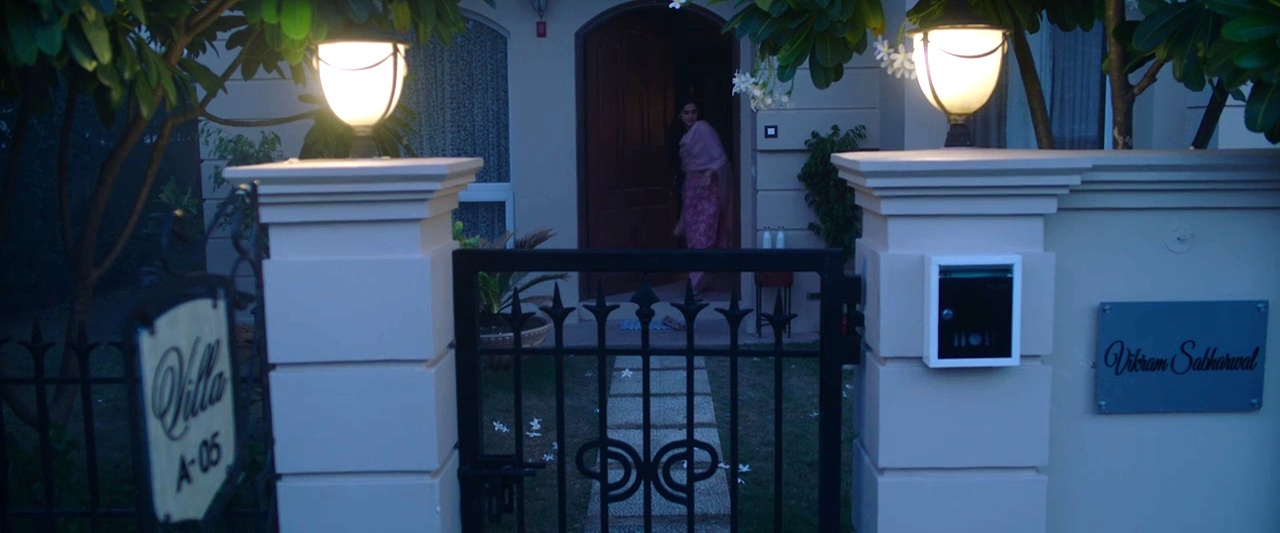
This is not the first time we see Amrita on screen. Her first scene has her being blamed by Vikram – as “her” printer wasn’t working. Once that problem is resolved, it cuts to the next morning that portrays just another day in Amrita’s life. She wakes up to shut the alarm, picks up the newspaper, cuts the lemongrass and prepares tea, measures blood sugar level of her mother-in-law, prepares and serves him breakfast for her half loving half complaining husband – though he sets off for office without eating it, as he’s getting late.
Amrita does all this work happily and humbly, for she does this all by choice. The days pass off quickly, and she feels no issue around to complain about. This above frame portrays Amrita’s just another day in her house, the nameplate of which reads the name of her husband – “Vikram Sabharwal”. Doesn’t this little and subtle detail ever cross her mind? Even if it does, she just humbly chooses to ignore it, making her husband’s world her own, continuously doing her part to help him achieve his London dreams of a house with a big blue door in Hampstead. She does love him. A happy tune plays in the background during these sequences, nothing has broken loose.
Amrita gets slapped
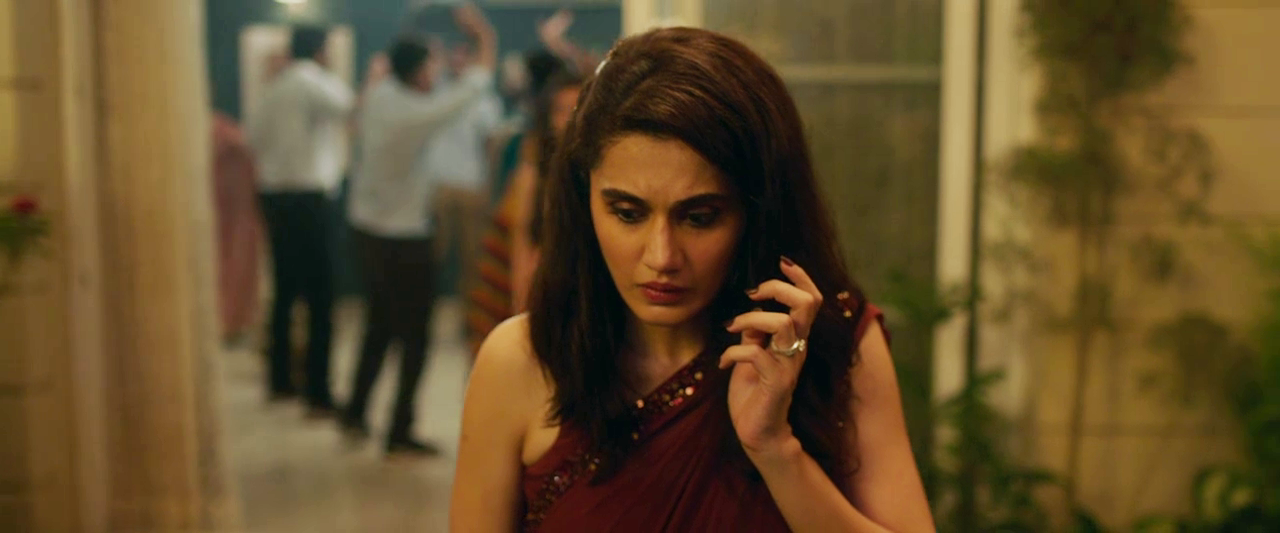
Amrita is happily dancing at the success party thrown at their place, for Vikram would be finally achieving his London dreams. But as corporate politics had it, things don’t work in Vikram’s favor after a call received at the party. Amrita reaches out and tries to pull back her grumbling husband, who is then fighting with his colleague – and in the heat of the hour as they call it – he slaps her. Amrita hadn’t seen it coming ever, and her world shatters. The people in the background are dancing to a Guru Randhawa song, the people around her are looking at what just happened to her. She gets further tormented by the thought of possible social questions – “Is this slap a first one or just another one? Has she faced any worse?”
Obviously broken and in tears to receive no apologies from her husband after this irreparable damage, her world takes a halt. The background score steers to a minimal one or just none. The pace of her life takes a toll and days now tend to pass much slower, for it emotionally pains Amrita deeply to do even a single task for the entitled male she loves, actually, “loved”. It further torments her to see no mention of the slap from anyone in that house. Her idea of balance in a marriage tumbles upside down. It all has broken loose.
Amrita speaking it out to her friend
A quiet Amrita who used to mind her own business, now begins to question everything and everyone. She doesn’t like Vikram’s world anymore. She thinks of the non-existent equality in her relationship with him. But the change in her attitude isn’t much cared about by her in-laws. Out of hopes from them, Amrita reaches out to her friend and neighbor Shivani, for the latter had seen what happened with the former that night. Amrita has always found Shivani considerate and empathetic enough – she isn’t proved wrong here either. An exhausted Amrita finds an emotional companion in this brief scene, where Shivani tells her the dynamics of her own happy marriage as a now widowed lady.
She further consoles Amrita with a required hug, but it’s Amrita rather who hugs her first here in a heartening moment. Amrita’s intuition is proven right. Not everyone like her in-laws is out of feelings and emotions – though she wasn’t much right to expect everyone to be like her friend. Expectations hurt too soon.
Vikram comes to Amrita’s place
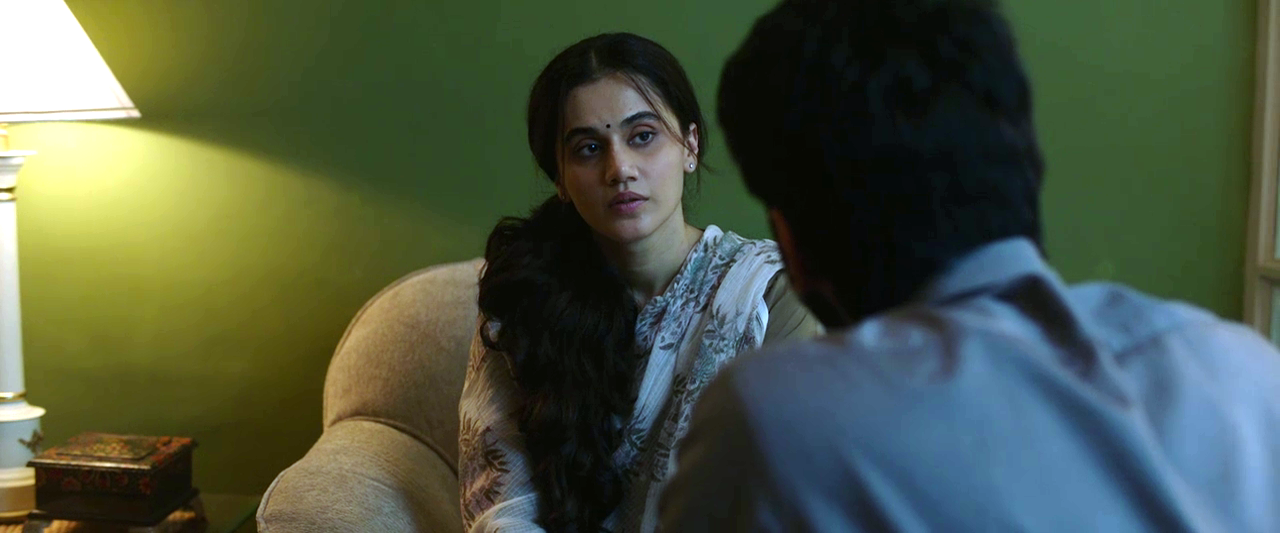
Hating Vikram and his world, Amrita comes back home expecting a considerate welcome like at her friend’s place. Her own parents tend to dwell on opposite ends of the moral spectrum regarding her choice. Not getting support but rather advices from parents, about settling it out, hurts Amrita’s confidence with which she left Vikram’s place. Though her caring father tries to brush the mother’s reaction off, it doesn’t help Amrita – for things had gone too far in her life. She needs a stronger support.
With finally Vikram coming to settle it and take her back, Amrita confronts him with the feelings she was corking up within. She tells him about how the slap is unjustified at any possible moment. She could have hit him back, but her morals didn’t allow her to. When he tries promising that the same won’t happen back, she bluntly says, “Kise pata? Ek baar toh ho gaya na. Agar ye ek baar mere dimaag se nahi nikla toh phir?”. When reminded of the big blue Hampstead door, she reminds him of his ignorance about never asking her while straight away deciding the color of the Hampstead door. She still stands proud of her decision to not go back to the world she doesn’t emotionally belong to anymore.
Filing the divorce case
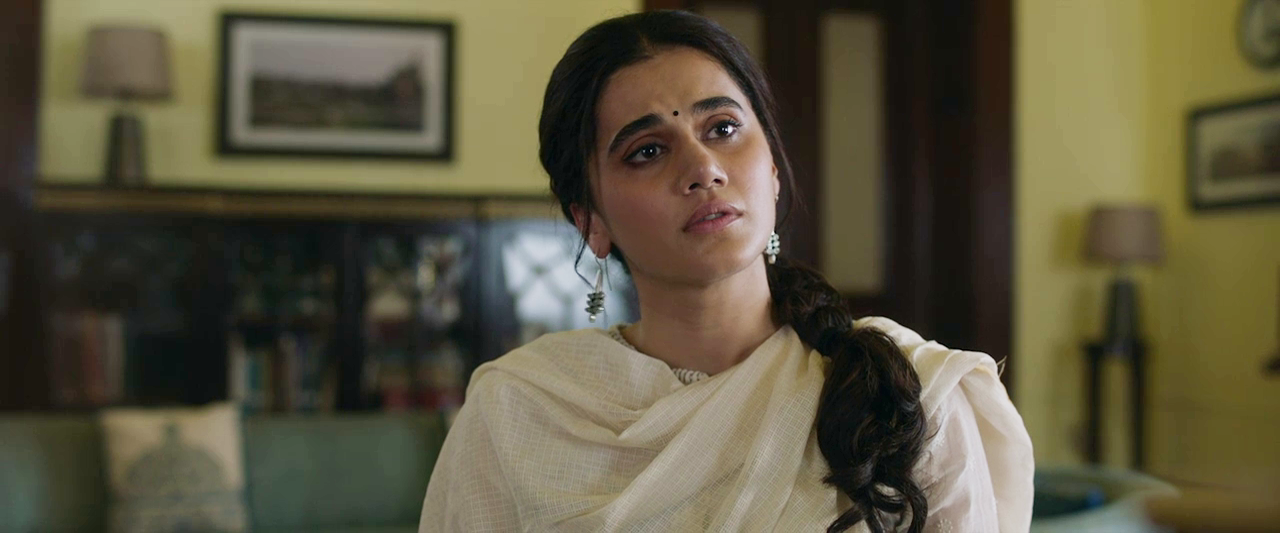
Clear and firm on her stand of love vs respect, she approaches a lawyer for filing her divorce from Vikram. When asked the reason, she says it’s only about the slap – “Just a slap, but nahi maar sakta”. Her moral stand has always been sorted, so she refuses to file a case of domestic violence on Vikram, as she finds her stated reason important enough for a separation. She doesn’t care that it may look exaggerated to many. It’s all about that slap for her, which got her losing all the love for Vikram.
For she respects herself a little more, she continues to tell the lawyer to fight her apparently “weak” case, as it means everything to her dignity and self-respect at the moment. An independent Amrita doesn’t want any of Vikram’s property or any maintenance sum, as she has never considered that her own. She always thought of her marriage by choice a fair deal – as she herself chose to look after the house while her husband went to the office. Slowly and eventually, she is realizing and retrospecting all the misogynistic treatment she has been subjected to back there. Her mind now refuses to forget that all. All she seeks is to separate and proudly move on.
The long-overdue confrontation
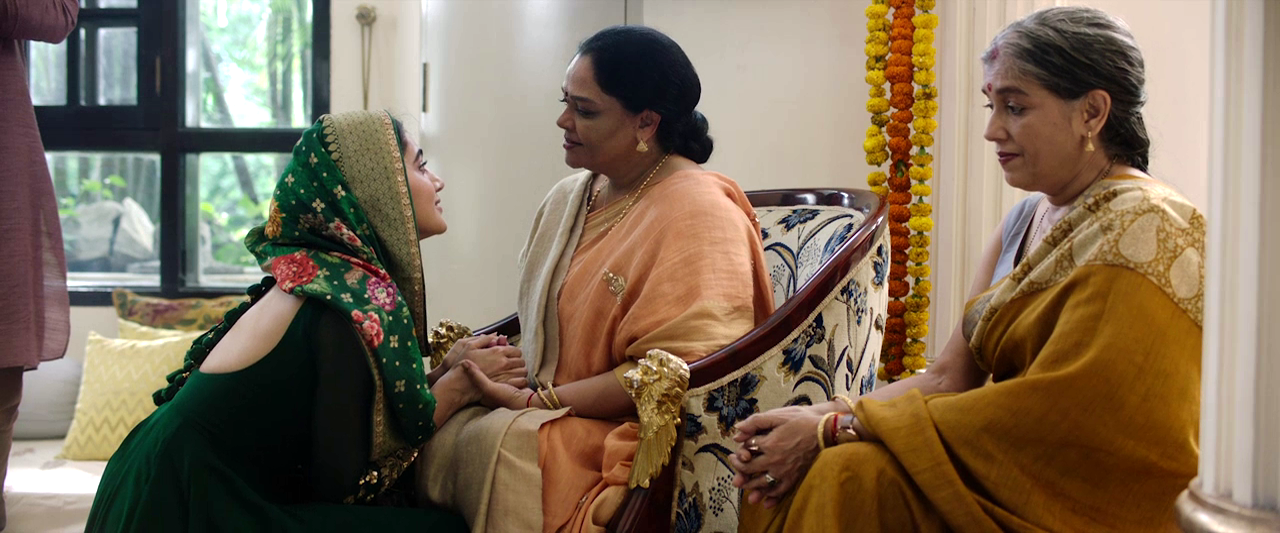
At a puja conducted at Vikram’s place, Amrita goes there reluctantly but with a happy face, probably to seize this one long-overdue moment of confrontation. She finally puts her feelings out to her mother-in-law Sulakshana – that her love for Vikram made her take this life-changing decision of settling as a housewife, as Amrita like any other girl didn’t aspire to be a housewife since childhood. Her mother-in-law’s reaction to the slap that night had made Amrita realize that she was always loved by Sulakshana – but only as Vikram’s wife and not the caring soul that she was.
Amrita cannot forgive the lady for not consoling, forget supporting her after that big moment. Finally giving the reply that Amrita was seeking for so long, Sulakshana says that it’s the mistake of the parents only to not teach their sons that a woman can’t be slapped. Better late than never, Amrita gets the little validation that she sought from the ones she had always loved and respected for a long time.
A new beginning for Amrita
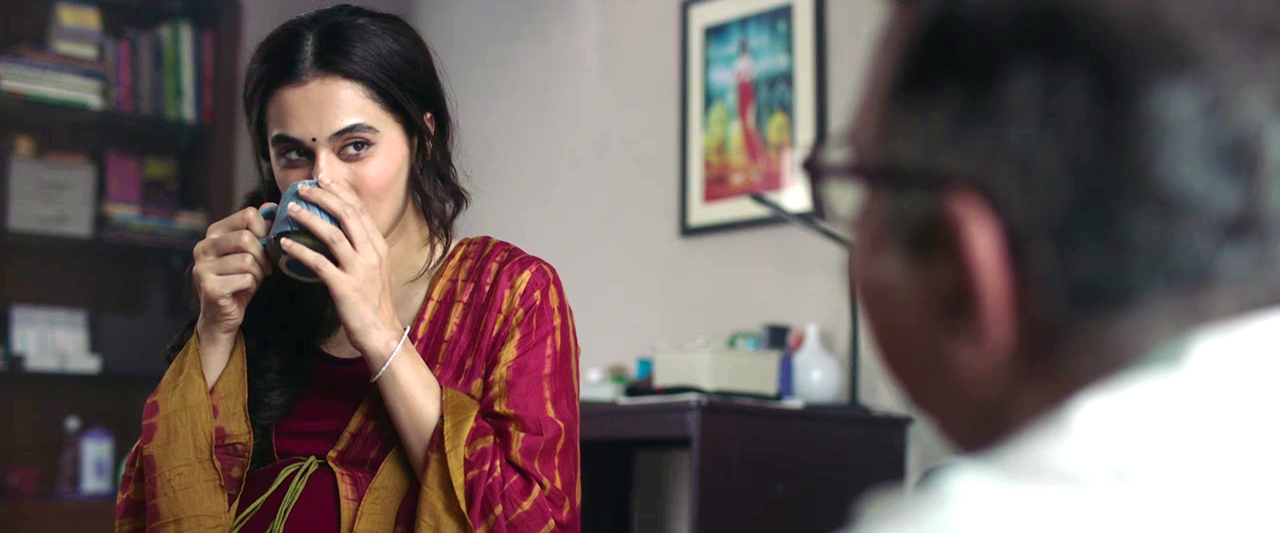
The happy tune of the background is back. The lemongrass is being cut, tea is being made, but Amrita is prouder and more satisfied now – standing happy and tall with the support of her parents.
In one of the conversations, Amrita is told by her father how she is named after the title of a poem he narrated back in his college. He narrates to her the poem well captures the spirit of Amrita the person – ambitious and caring – but scattered at times when she needs to be put together by else one – so that she can stand tall again to be ambitious and caring.
The restored dignity and independence
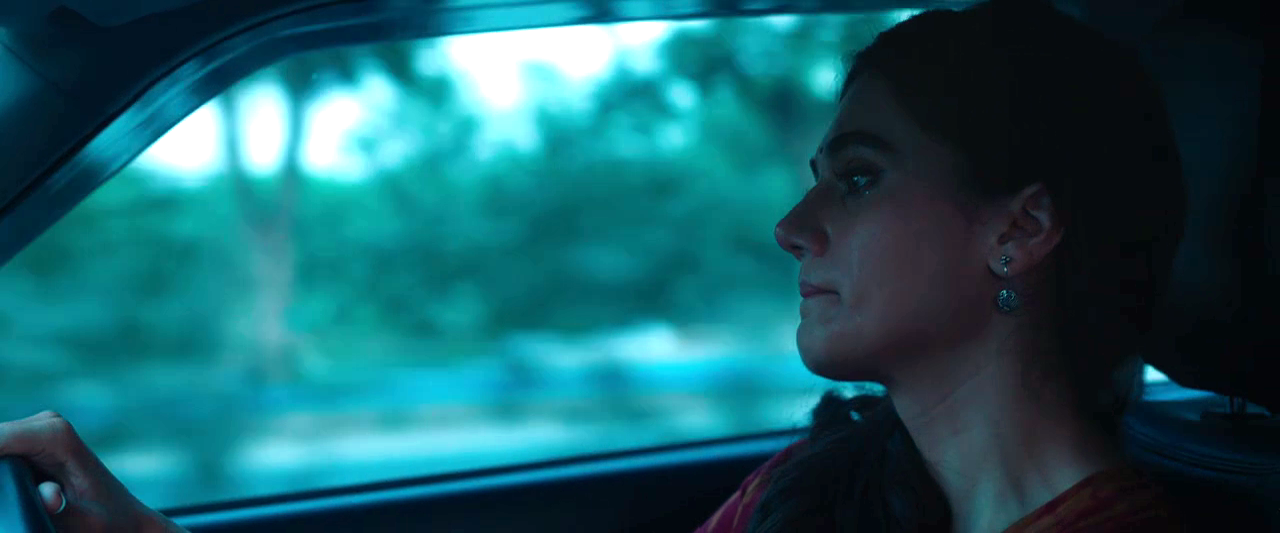
Just before finally signing the divorce, she sits with Vikram for the last conversation. She here hears from him everything she needed to hear that moment after the slap – how Vikram has no right to slap her, how the Hampstead house with big blue doors is void without Amrita’s presence, and a “Sorry”.
But better late than never doesn’t apply to all the things in life. Amrita sits asserted, barely reacting to whatever he is speaking, as she had emotionally begun moving on right after the big moment. Some damages done are beyond repair, but she has mentally made peace with it that the manchild Vikram won’t realize it. In the last final sequence, a dignified and independent Amrita drives a car back home, mirroring that no one else is allowed to control her life. She isn’t caged by any love. Torn between love and respect, she assertively chose her respect. She is now proudly free with a restored self-respect.
Watch Thappad movie here: Thappad (2020) | Amazon Prime Video
Also Read: Irrfan Khan: A Tribute traversing the memory lane of emotions
Also Read: My 5 Favourite Frames by Ravi Varman
Also Read: Highway (2014) : My 5 Favorite Scenes
Also Read: Tamasha (2015): My 5 Favourite Scenes
Also Read: Imtiaz Ali Movies, Ranked from Least Good to Best








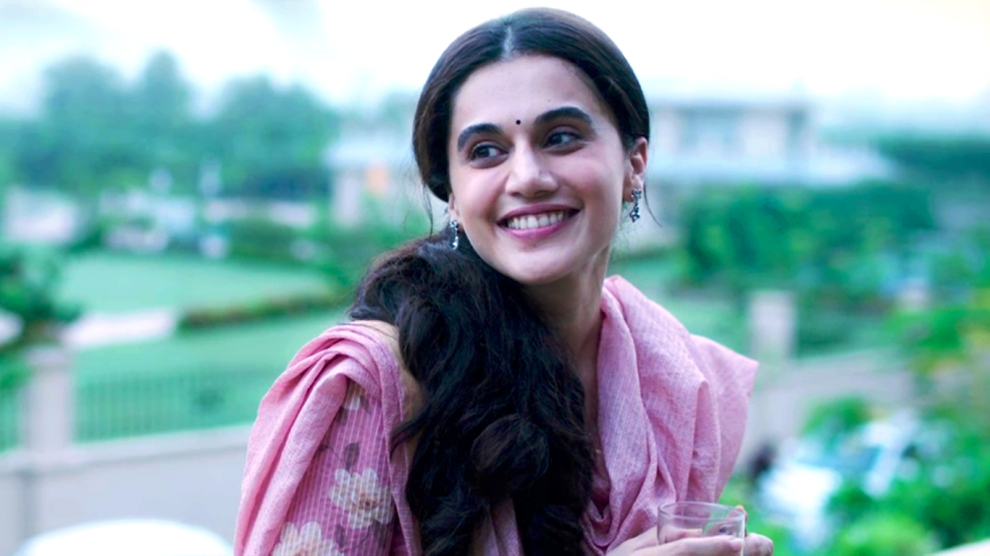
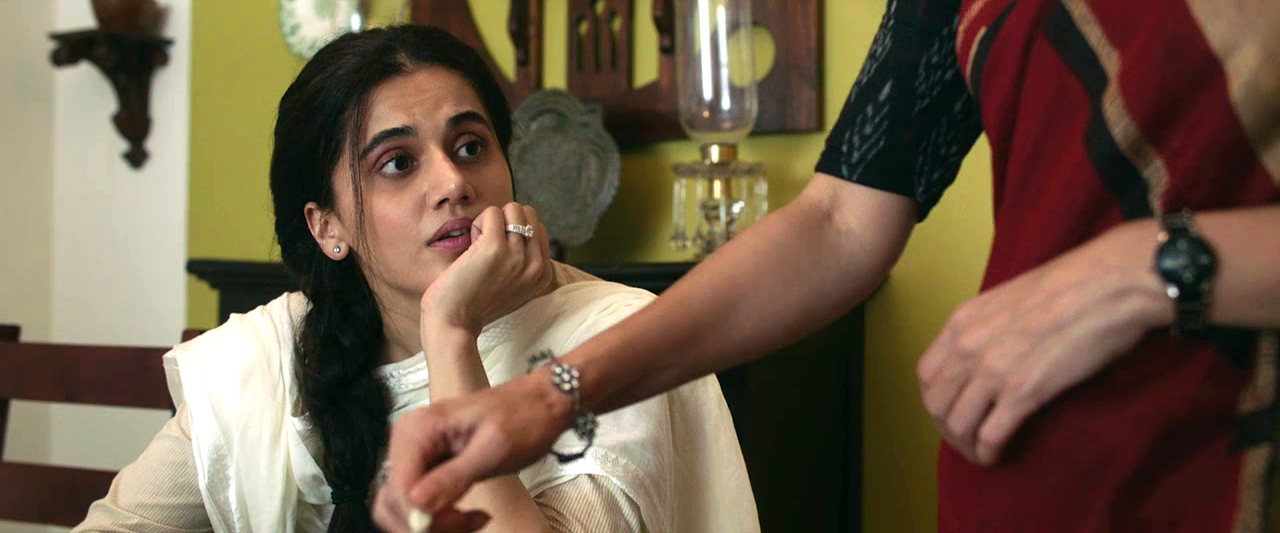






In the end, she made her husband realized that she was the most precious in his life more than his job, and, she in his life was like a cell in a human body – Elementary unit.❤️❤️
Beautifully put. I agree! ❤️